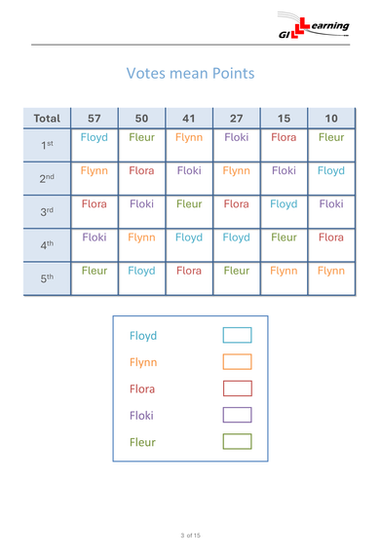Can Voting Ever Really Be Fair?
16
videos
5
hours
1
worksheets
Presenter

Michael
Written by

Louise
Video Editor

Alex

In a democratic society, every vote matters!
Or does it??? Can voting ever really be fair?
That's the question that lies at the very heart of this course.
Join us today in our quest for a fair vote. And brace yourself for some outrageous-but-true surprises along the way!
The famous quote, "government of the people, by the people, for the people" by US President Abraham Lincoln encapsulates the essence of democracy. Indeed, the fight for "one person, one vote" is an idea that most people are familiar with. But winning the right to vote is only the first step. The fight for an equal vote has been just as long and hard, and continues to this day even in the most well established democracies of the world. The idea is that your vote should be just as powerful as mine, no matter who you are, which party you support, where you live, or how many candidates are standing on your side.
In our search for an equal vote, we’ll explore a whole range of different voting systems. As voters, we should feel safe to vote honestly and be able to express our full opinion on the candidates standing for election. And the voting system itself should result in an outcome that reflects the will of the people as best as possible.
Our aim is not only to illustrate the importance of maths applied in the field of psephology (the study of elections and voting), but also to show how important it is that you understand your election system before casting your vote.
As the Government here in the UK (at the time of filming) moves to make 16-year-olds eligible to vote, there could hardly be a better time to become a voting-systems guru.
This course is apolitical. While we cite many real-world examples, our attention is focused on the island of Wotta Woppa where we find the Dilli-Dallies struggling with their fledgling democracy. We’ve fallen in love with these furry, bipedal critters; we hope that you do, too.
Course Video Itinerary:
Course Introduction and Motivations
Can Voting Ever Really Be Fair?
The Votes Are In
Thinking Like a Mathematician
Who Do You Think Has Won?
First Past the Post
First Two Past the Post
Votes mean Points
Elimination - Alternative Vote
Elimination - Coombs Rule
Splitting the Vote
Head-to-Head Battle
Head-to-Head - Pros, Cons, and Uses
Your Next Mission
Election Outcome on Wotta Woppa
Course Summary and Conclusions
This course also includes a 15-page downloadable PDF workbook. It is here that you will meet the Flippity Flops from the neighbouring island of Vulcan Vales. They too are trying out this novel “democracy” idea and have got themselves into a bit of a pickle. Can you help them to decide who should rightfully become their inaugural Prime Flop? The workbook is an integral part of the course and we encourage everyone to have a go! It maps exactly to the course videos: you will complete it as you progress. It can be viewed on-screen using any (free) PDF application, or of course it can be printed out. There is space in the workbook for your workings and answers, and as always, it comes with fully worked solutions. You can view a handful of sample pages below.
We hope that you’ll be inspired to delve deeper into the art of psephology and develop your own thoughts as to how we should elect our representatives. Perhaps you’ll take up the fight for an equal vote for yourself and, little by little, help to build a stronger democracy!
Course Author: Louise
Course Presenter: Michael
Video Editor: Alex
Supplementary Information and Disclaimers:
Free-to-view videos are intended to give non-members a taster of our courses.
The course worksheets and accompanying worked solutions are available only to members of Gill Learning.







